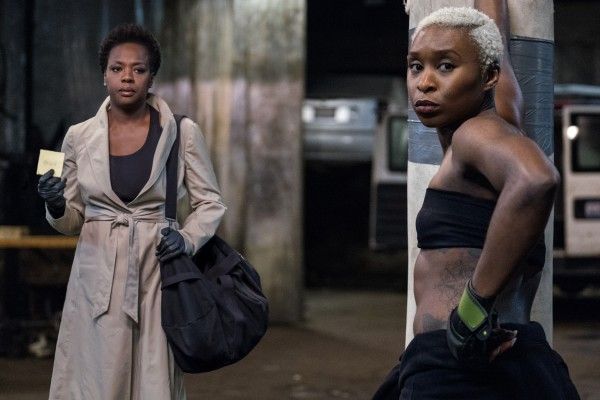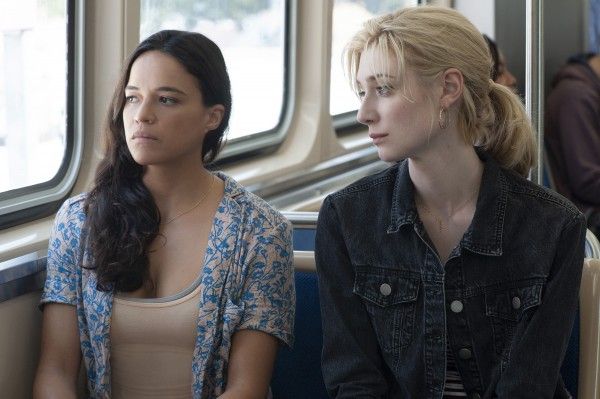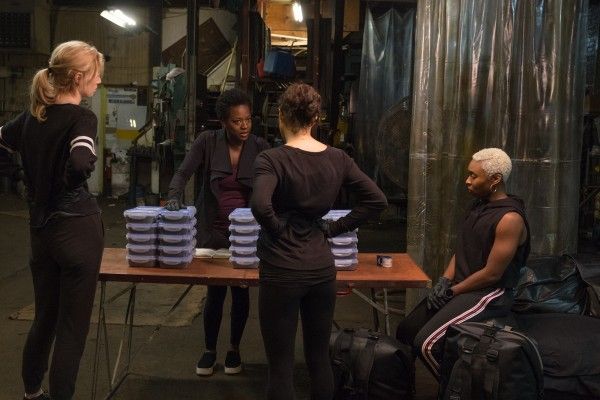A recurring game in fandom is to match beloved filmmakers to blockbuster projects. You take an acclaimed director who made an indie you liked or who hasn’t helmed a franchise movie yet, and you plug them into a franchise you want to see them direct. I understand the appeal of this. If you told me tomorrow that Guillermo Del Toro was directing the next Fantastic Beasts movie, it would slightly restore my faith in that series. But is that the best way for these filmmakers to spend their time? Should we really be feeding them into the studio machine to churn out more product rather than their own visions?
This past weekend, we got Widows, which shows that an esteemed filmmaker can still make entertainment for the masses without sacrificing their vision or playing into the rules of franchise film-making. Steve McQueen’s previous movies—Hunger, Shame, and 12 Years a Slave—are by no means crowdpleasers and he could have continued in this vein, making challenging movies that may not have mass appeal but are still powerful dramas that demand our attention. Instead, he took a different route and decided to go with an adaptation of a 1983 TV mini-series with Gone Girl author Gillian Flynn penning the script.
The result is electric, and while some audiences may have been expecting something more prestigious, Widows is a crowdpleaser through and through while still having a brain. Granted, if you go solely for the heist, you’re not going to get anything on the level of an Ocean’s movie, but McQueen still makes the entire movie feel dangerous and unsettling as women are forced to take on a job their criminal husbands left behind. The subtext—the rampant toxicity of men—permeates every scene, but it doesn’t make the movie any less enjoyable or a joy to watch.
If Widows had been a franchise movie, it wouldn’t be able to challenge the audience in this way. Fandom is very strict with its rules, and even when you think you’re playing by them, any kind of variance could be met with fierce disgust and upheaval (just ask Rian Johnson). It’s not that directors like Steve McQueen can’t direct a film like Star Wars or a superhero movie. It’s that the boundaries of those franchise don’t allow him to maneuver in the way he prefers. And while it sure would be neat if he took on a Star Trek film, I’m not sure if that’s really what I want from a visionary like McQueen. I love Star Trek and I love Steve McQueen movies, but I’m not sure I need them to go together.
That’s not to say directors can’t bend a franchise to their will and find a way break the mold. Patty Jenkins did it with Wonder Woman and Ryan Coogler did it with Black Panther. But those directors found a way to still leave their stamp on the material. They still had to do so in a way that wasn’t too disruptive, but the compromise is still impressive. And yet not every director should have to compromise. If every great director is just waiting to be gobbled up by a franchise, then their movies just become calling cards so they can make blockbusters. There is room for personal vision in franchise film-making, but that is a small window, and more often than not, the needs of the franchise edges out the vision of the filmmaker.
If you want to see your favorite directors take on more populist entertainment, there’s nothing wrong with that. But maybe next time instead of shouting that Kathryn Bigelow or Bennett Miller should do a franchise movie just because the director’s seat is open, take time to appreciate the work that they’re doing and advocate for something other than just another piece of a franchise machine. We should be celebrating when a director makes a movie like Widows rather than just another piece of a blockbuster franchise.




